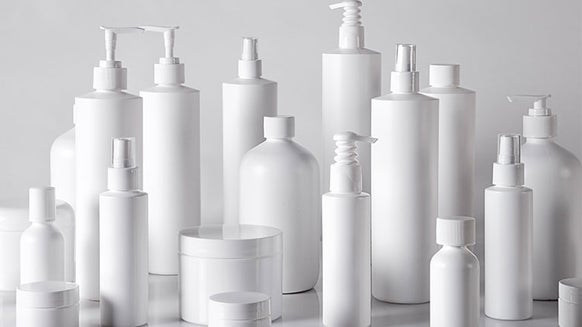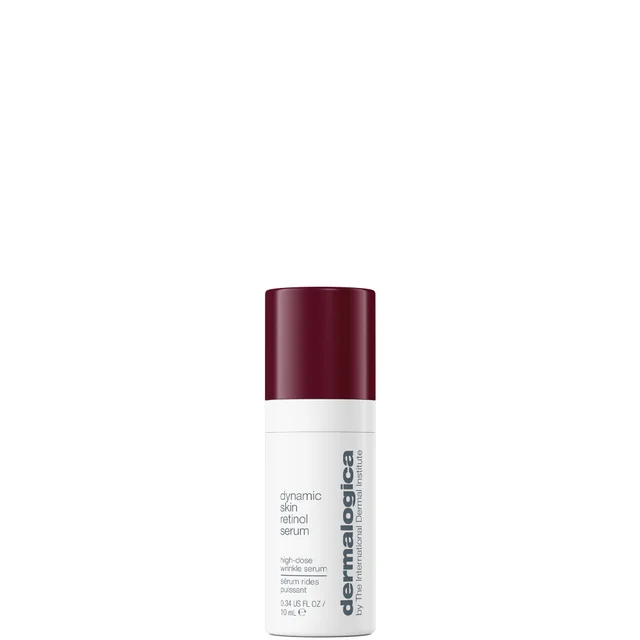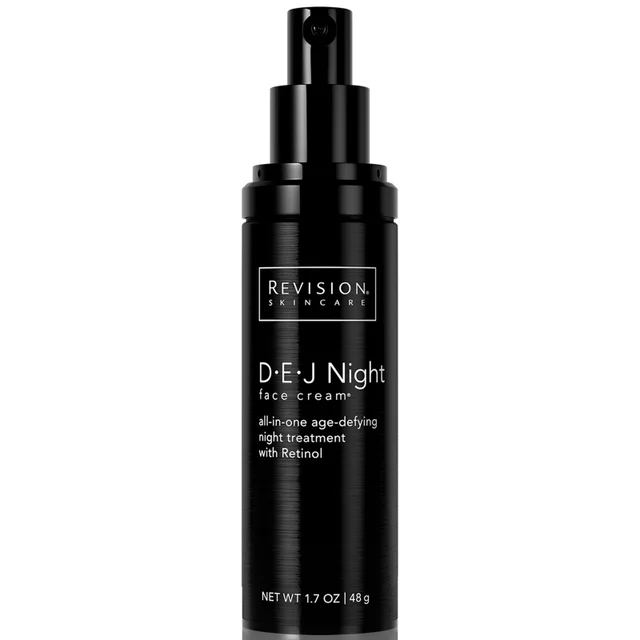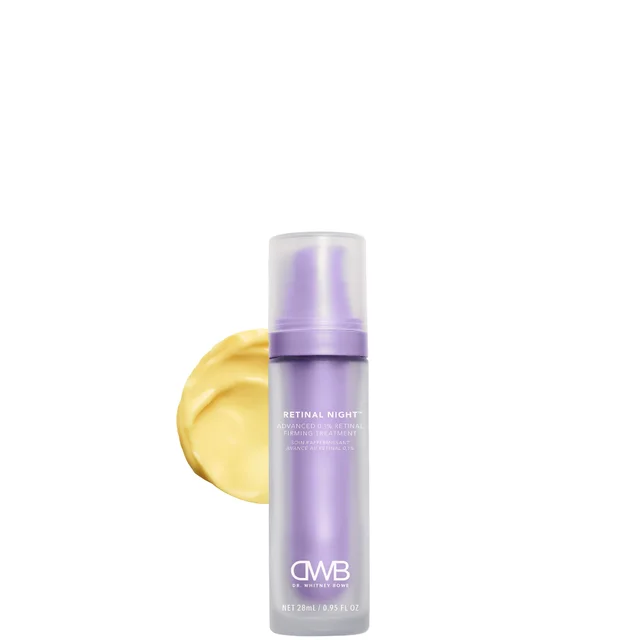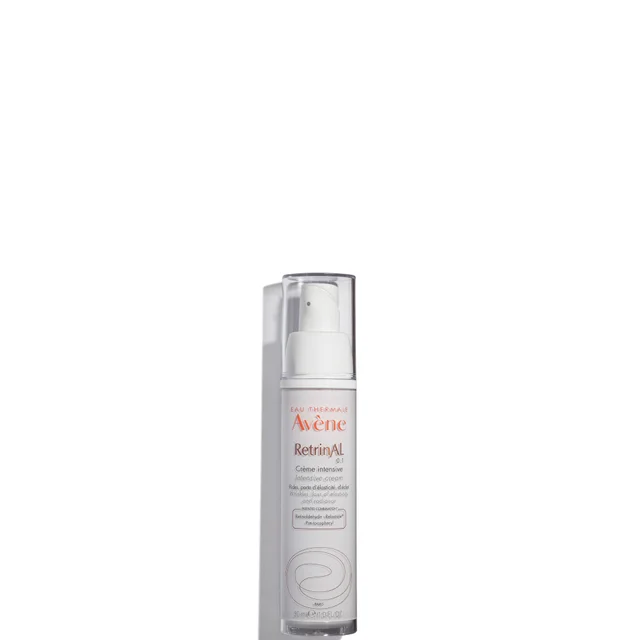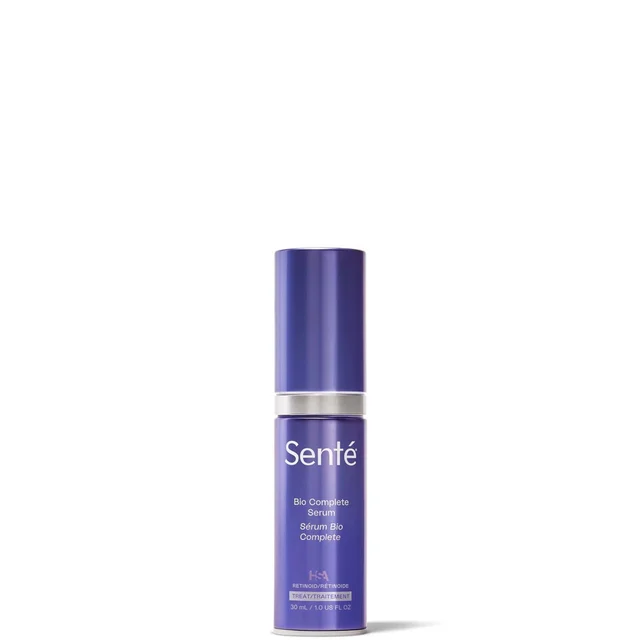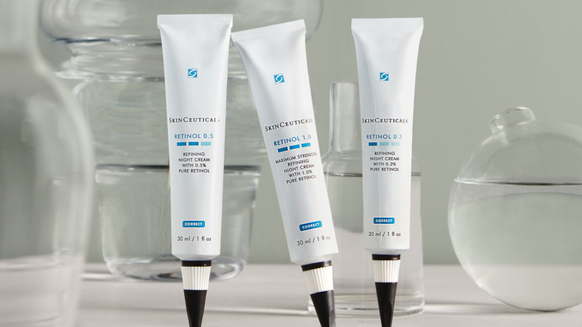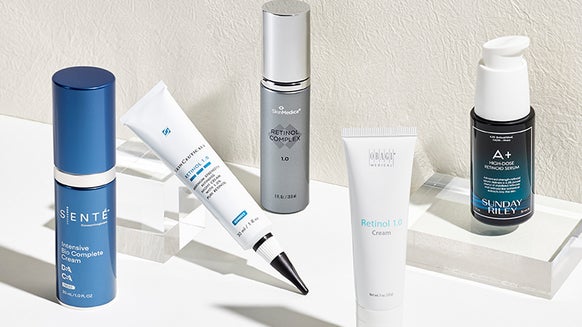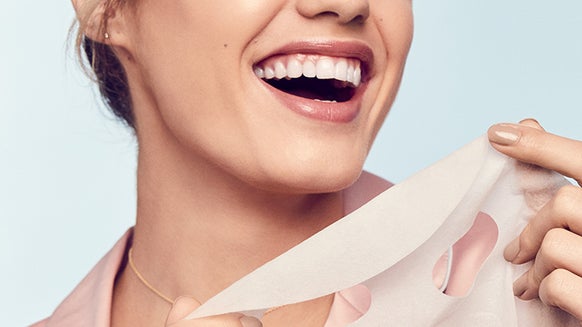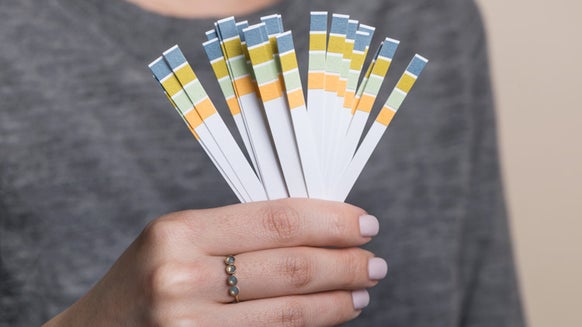Here’s the Truth Behind These 10 Retinol Myths, According to Derms
Although there’s no disputing the fact that retinol is the absolute gold standard in anti-aging skincare, it’s also one of the most puzzling and intimidating. Does it really thin one’s skin? Is “retinol purge” actually a good thing? Will it make skin susceptible to sun damage? As an ingredient that promises to do it all, retinol has always been the subject of many questions and speculations that make first-time users iffy about embracing the anti-aging rockstar. That’s mainly because unlike other skincare ingredients, retinol use can be a bit more complex and comes with plenty of confusion, misinformation, and perceived harshness, says Dr. Dahlia Rice, board-certified plastic surgeon and founder of DMR Aesthetics.
So, to separate retinol fact from fiction, we spoke with the experts to debunk the most common retinol myths to help you understand what exactly you’re getting into before hopping on the retinol train.
Meet the Experts
- Dr. Ashley Magovern – Dermstore medical director and board-certified dermatologist
Dr. Dahlia Rice – Board-certified plastic surgeon and founder of DMR Aesthetics Dr. Mary Lupo - Board-certified dermatologist, founder of the Lupo Center for Aesthetic & General Dermatology, and Persana verified physician Dr. Simran Sethi - Board-certified physician, CEO and founder of RenewMD Medical and Wellness Spa, and host of The Skin Report podcast
10 Most Common Myths About Retinol Debunked
1. You can’t use retinol in the summer.
This is one of the most common misconceptions about retinol that dermatologists often hear from patients who are unsure if the ingredient is right for them. “You should be using retinol all the time. I find that people never start their retinol or start and stop it too much because they are ‘going on vacation’ or are ‘going to be in the sun.’ It’s true that you may be a little more prone to sunburn when you are first starting your retinol, but with regular use, your skin will become more resilient and being in the sun should not be a problem,” explains Dermstore medical director, board-certified dermatologist Dr. Ashley Magovern, MD.
In fact, Dr. Rice clarifies that retinol itself doesn’t actually make skin more susceptible to sunburn. “It does cause skin irritation, which can be worsened with strong elements such as wind and extreme weather temperatures,” she explains. “Retinol breaks down in sunlight, reducing efficacy, which is why nighttime application is recommended and daily sunscreen of broad-spectrum protection with a minimum of SPF 30 is essential.”
2. All retinoids are the same.
Not all retinols are created equal, says Dr. Rice, and some retinoid products are stronger than others and can address more serious skin concerns. “Over-the-counter retinol is less potent than prescription retinoids. Different formulations cater to specific skin concerns and tolerances,” adds Dr. Rice.
If you’re trying out retinol for the first time, start with the lowest dose your skin can tolerate and gradually work your way up. “Low strength (0.01 percent to 0.03 percent) is suitable for beginners or sensitive skin. Medium strength (0.04 percent to 0.1 percent) is ideal for intermediate users or those building tolerance. High strength (0.2 percent to 1.0 percent) is best for experienced users with more resilient skin,” Dr. Rice explains.
3. Retinol thins your skin.
Here’s the truth: retinol speeds up the skin’s cell turnover cycle, causing it to shed its old layers faster than normal and result in peeling. This, however, doesn’t mean that retinol is thinning your skin. In fact, quite the opposite is true, says board-certified dermatologist Dr. Mary Lupo, Persana verified physician and founder of the Lupo Center for Aesthetic and General Dermatology. “Over time, the skin is strengthened and thickens in a healthy way,” she says.
Board-certified physician Dr. Simran Sethi, CEO and founder of RenewMD Medical and Wellness Spa and host of The Skin Report podcast, echoes this, adding, “Retinol increases collagen production and as a result, dermal thickness, making skin thicker and more resilient against signs of aging like fine lines and wrinkles. Clinical studies have consistently shown that after 6 months of using retinol the skin’s epidermis and dermis are significantly thicker."
4. Retinol exfoliates your skin.
We know that retinol can have an exfoliating effect on the skin, but according to Dr. Rice, this is more of an added benefit than a result of being an actual exfoliator. “Retinol accelerates cell turnover, but it’s not a direct exfoliant like alpha hydroxy acids (AHAs). The peeling effect is a side benefit of cellular renewal,” she explains.
However, it’s important to note that faster cell turnover may cause old skin layers to build up on the surface. “You need a safe but effective exfoliant on hand to remove all that dead skin while protecting the skin barrier to fully experience the benefits of retinol,” says Dr. Sethi. “Skin Cycling is a great way to use retinoids with exfoliants to reveal healthy and clear skin without the risk of barrier disruption.”
5. Redness and peeling are signs you should stop using retinol.
Sometimes, experiencing redness and peeling after introducing your skin to a new ingredient can be a red flag and your skin’s way of telling you to hit the brakes. In retinol’s case, this “purging” period is all part of the process. “Retinoids are drugs that have profound effects on the skin. Keratinization is optimized and transfer of pigment from basal melanocytes into keratinocytes is reduced. In the dermis, papillary collagenesis is optimized and the dermal-epidermal junction is strengthened,” explains Dr. Lupo. “In the beginning, there can be significant ‘retinization’ resulting in redness and flaking and sun sensitivity.”
And while it’s perfectly understandable to feel alarmed by these reactions, Dr. Rice says there’s no need to cut ties with retinol once and for all. “These are normal adjustment signs and can be managed by reducing frequency, using a lower concentration, or mixing it with your face cream,” she explains. “Severe or prolonged irritation, however, should be discussed with a professional.”
6. Retinol delivers fast results.
We know, we know. In today’s world, almost everything we need is just a tap on our phone screen away, but that’s not really the case when it comes to skincare. Specifically, retinol benefits. Active ingredients, retinol included, take time to deliver its full benefits and a good amount of patience to see its long-term results. “Retinol works gradually, with visible results often taking eight to 12 weeks or longer,” says Dr. Rice. The trick in making sure you’re on your way to achieving your desired results, she says, is consistency.
7. You should use retinol every day.
Daily use of retinol is only possible for seasoned retinol users whose skin has already fully acclimated to the ingredient, but as a general rule—and especially if you’re a retinol newbie—how often you use the ingredient depends on what your skin can tolerate, says Dr. Sethi. “You may have to use retinol a few times a week, but you will still experience its benefits. It is NOT beneficial to use retinol daily if it is causing your skin to peel and get red and irritated. These are signs of a broken skin barrier and will get in the way of seeing results,” she explains.
8. You shouldn’t mix retinol with vitamin C.
Retinol and vitamin C are heavy-hitting anti-aging ingredients. So heavy, in fact, that they can be too harsh for your skin when you use both at the same time. But thanks to skincare advancements, plenty of retinol products have found a way to put these two skincare superstars in the same formula without the unwanted reactions that often came with mixing potent actives.
9. You don’t need retinol while your skin is still young.
While most of us typically associate retinol with having mature skin, experts say there’s no specific age to start using retinol. That said, it’s always a good idea to get a head start on keeping signs of aging at bay and consider adding retinol to your skincare routine in your 20s. “Prevention is always better than correction, which means that using retinol early in life will prevent signs of aging. Our skin cell renewal starts slowing down in the mid-twenties, so starting to use retinol around that time is a great consideration,” explains Dr. Sethi.
10. Retinol is not for everyone.
If you have dry or sensitive skin, you may have heard things about retinol that made you not want to touch the ingredient with a ten-foot pole. But here’s the thing, according to Dr. Magovern, everyone can and should use retinol. “I’ve learned that even the most sensitive skin types can use retinol successfully, and in fact, with regular use, their skin gets less sensitive and more robust with time (the skin gets stronger and healthier),” shares Dr. Magovern. “There are so many options now in terms of formulations and concentrations. Start low if you need to, and perhaps pick a formulation that has some anti-inflammatory ingredients built in.”
And if you’ve been avoiding retinol because you have dry skin, Dr. Rice says it doesn’t have to be the case as long as you prep your skin properly. That means adding a rich moisturizer with barrier-repairing ingredients to minimize dryness and irritation or opt for the sandwich method, she adds. This involves applying a layer of moisturizer before and after retinol to reduce its potency. The only time you need to skip retinol is when pregnant or nursing, says Dr. Rice. “While topical retinol’s systemic absorption is minimal, the lack of conclusive safety data means it’s better avoided during pregnancy and nursing,” explains Dr. Rice. “Safe alternatives like bakuchiol can help you maintain your skincare routine without unnecessary risks.
Shop the Best Retinol Products
1. Medik8 Crystal Retinal 10 Serum
This powerful, clinically proven formula features a stabilized retinaldehyde and gradual-release system and delivers maximum results without the irritation. Infused with 0.1 percent retinaldehyde, Retinal 10 is the most popular strength out of Medik8’s progressive doses and is ideal for skin that’s already grown accustomed to retinol. New to retinol? Fret not. Crystal Retinal also comes in lower strengths of 0.01, 0.03, and 0.06 percent, so you can safely take your retinol journey to the next level.
Key Ingredients: Next-generation Retinaldehyde
Skin Type: All skin types
Beauty Insider Tip: It also fits perfectly in the brand’s CSA method—vitamin C and sunscreen in the morning and retinol (vitamin A) at night.
Related Article:Reviewed: Medik8 Crystal Retinal Collection
2. Medik8 Crystal Retinal 24 Serum
Expert retinol users will love the newest and highest-potency version of Crystal Retinal, which boasts of a high-performing formula that smooths fine lines, improves texture, and boosts radiance without the usual irritation associated with stronger retinoids. The secret? It’s powered by the same supercharged retinaldehyde that acts 11 times faster than traditional retinol and boosted by hydrating ingredients to keep your skin looking younger and radiant.
Key Ingredients: Next-generation Retinaldehyde
Skin Type: All skin types
Beauty Insider Tip: Opt for the Medik8 Crystal Retinal 20 if you think your skin isn’t quite ready for the highest strength but want to step up your retinol game.
3. Dermalogica Dynamic Skin Retinol Serum
The answer to your fine lines and wrinkles woes, this retinol combines retinol with two other advanced retinoid complexes, including granactive retinoid® and time-released encapsulated retinoid, and moisture-boosting ingredients to tackle visible signs of aging and texture concerns without having to worry about irritating or drying out your skin.
Key Ingredients: Multi-retinoid complex, Squalane, Beta-Glucan
Skin Type: Mature, Normal, Combination, Oily
Beauty Insider Tip: This advanced formula features 3.5 percent high-dose retinol that’s gentle enough for nightly application for expert users.
4. Revision Skincare® D.E.J. Night Face Cream
Infused with 0.25 percent and boosted by bakuchiol, this all-in-one treatment is designed to rebalance the skin’s own microbiome, support and strengthen its natural barrier, and target visible signs of aging while you sleep.
Key Ingredients: 0.25 percent Retinol, Bakuchiol, THD Ascorbate (Vitamin C), Alpha-Glucan Oligosaccharide, Antioxidants
Skin Type: All skin types
Beauty Insider Tip: This face cream makes it possible to use two powerhouse ingredients—vitamin C and retinol—at the same time.
5. Dr. Whitney Bowe Beauty Retinal Night Advanced 0.1 Retinal Firming Treatment
Whether as part of your Skin Cycling routine or as a standalone retinoid, this retinaldehyde treatment is designed to visibly smooth and refine the look of fine lines and wrinkles and improve radiance, bounce, and firmness, and increase the skin’s elasticity.
Key Ingredients: 0.1 percent Retinaldehyde, Peptides, Lipids
Skin Type: All skin types
Beauty Insider Tip: If following the Skin Cycling technique, use this serum for night two of your routine. You may also apply this serum three nights in a row for a more advanced routine.
6. Avène Professional Retrinal 0.1 Cream
Featuring an advanced and fast-acting dose of vitamin A, this skin-loving moisturizer tackles and visibly improves the look of fine lines, wrinkles, discoloration, and other signs of aging while shielding your skin from damage caused by environmental stressors.
Key Ingredients: Retinaldehyde, Vitamin E, Patented Pro-Elastin Peptide
Skin Type: All skin types
Beauty Insider Tip: Apply a small amount of the product on the face and neck every night or as recommended by your physician.
7. Senté Bio Complete Serum
Say goodbye to dull skin and fine lines and wrinkles with this nighttime serum that combines retinol with heparan sulfate analog (HSA) to enhance your skin’s tolerance of retinoids while ensuring your skin reaps its full benefits—smoothing fine lines, restoring texture, and improving discoloration.
Key Ingredients: Heparan Sulfate Analog, Retinol, Vitamin C, Peptides
Skin Type: All skin types
Beauty Insider Tip: Also infused with vitamin C, this serum also helps protect the skin from free radical damage while brightening the complexion and enhancing its natural glow.
8. Dr. Dennis Gross Advanced Retinol + Ferulic Overnight Wrinkle Treatment
For mature skin that’s dealing with deep lines and creases, this advanced formula that expertly harnesses the combined benefits of retinol and vitamin C helps to visibly lift skin, smooth deep wrinkles, and even out tone and texture while boosting hydration.
Key Ingredients: Trans-Retinol and Encapsulated Retinol, Bakuchiol, Ferulic Acid
Skin Type: Mature Skin, All skin types
Beauty Insider Tip: Apply two to three pumps of the product and massage into clean, dry skin nightly.
The Bottom Line
Few other ingredients can come close to the skincare benefits of retinol, but it’s always been surrounded by misconceptions that make the ingredient more intimidating than it has to be. Contrary to popular belief, retinol can be used safely and effectively by everyone, including those with dry or sensitive skin. Even the dreaded retinol purging can be lessened and mitigated with the right preparation. The trick to achieving the best results, according to experts, is to ease your skin into retinol, proper application, sun protection, patience, and consistency.

Janeca Racho is a Journalism graduate with over 15 years of writing experience. After getting her start in public relations and advertising, she made the switch to freelance writing and began working for various lifestyle, fashion, and travel brands. Her love for all things skincare has led her to beauty reporting and research for the last ten years. Writing for several hair and beauty blogs, she reports on anti-aging staples, trending brands and products, must-have ingredients, and health and wellness.
Related Posts

How to Get a Beach Body: Our Best Skin Care Tips to Get Your Body Ready for Summer
